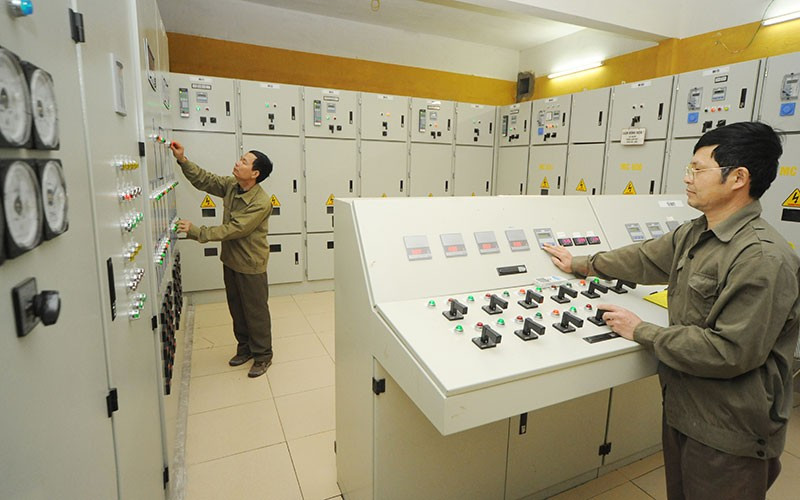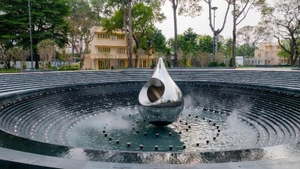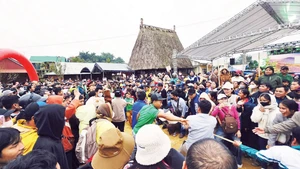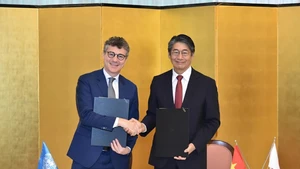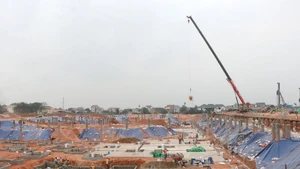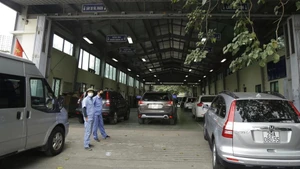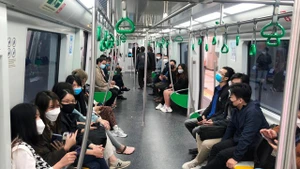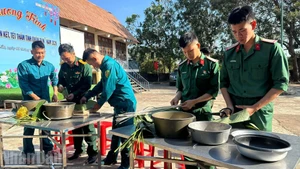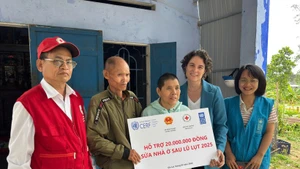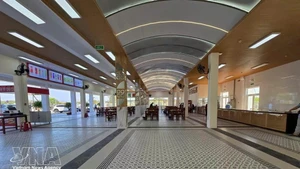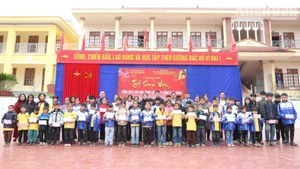Bac Ninh is one of the 18 provinces and centrally governed cities in which all of their communes are recognised as new rural areas.
On January 19, 2022, Yen Phong was the last district in Bac Ninh Province to be recognised for meeting the criteria for a new-style rural area. As of the end of 2022, all communes in Bac Ninh Province were recognised as new rural areas, with all district-level units having completed the task of building new rural areas. Currently, nine communes have been recognised as advanced new rural areas.
Ten years into the journey of building new rural areas, Bac Ninh’s countryside has been transformed and the people’s standards of living enhanced. Rural infrastructure has been gradually upgraded to increasingly better meet local residents’ needs for production and daily life.
The agricultural economic structure is changing towards large-scale commodity production and greater adoption of science and technology, while the proportion of industry and services is rising rapidly. The people’s living standards have seen significant improvement.
An official survey indicates that Bac Ninh people are highly satisfactory with the building of new-style rural areas, regarding it as a substantive undertaking.
According to Cao Thi Thuy, a resident in Thuan Thanh Town, the new rural area development programme has led to considerable transformation where she lives. Narrow and muddy roads after rain have been upgraded to wider concrete roads connecting villages and even leading to the fields. Power infrastructure, roads, schools, healthcare stations and cultural houses in residential areas have been built to fulfil the people’s aspirations.
She added that prior to building new rural areas, local residents mainly used unhygienic water from ponds, lakes and wells, causing many to contract diseases with their digestive system and skins. But now they already have access to clean water and do not have to worry about the diseases from using untreated water.
According to Director of the Bac Ninh Centre for Clean Water and Rural Hygiene Nguyen Dong Thap, in recent years, Bac Ninh Province has utilised various capital sources to supply clean water to rural areas to help enhance public health and contribute to the cause of building new rural areas.
Since 2021, the rate of rural residents with access to hygienic water in Bac Ninh has reached 100%, higher than the national average of 88.6%, while the proportion of rural residents with access to clean water in accordance with the Ministry of Health’s standards is 80.3%, higher than the national average of 51%. The rural clean water supply system has been built in all communes of Bac Ninh Province. More than 50 clean water supply facilities in the province are operating effectively to meet the people’s demand and help increase the rate of clean water use.
After completing the task of building new rural areas, Bac Ninh Province has quickly embarked on building advanced and exemplary new rural areas. During the 2021-2025 period, the province strives to have at least 50% of communes in each district and town recognised as advanced new rural areas, including 30% with exemplary new rural area status. Each commune will have at least one exemplary new rural village. Gia Binh and Luong Tai Districts will meet the standards of advanced new rural areas.
Director of the Bac Ninh Department of Agriculture and Rural Development Dang Tran Trung, in order to achieve such targets, Bac Ninh Province will direct communes to review and assess the criteria for advanced and exemplary new rural areas to work out implementation plans for the 2021-2025 period. The province will also step up supervision to ensure the fulfilment of the set targets.
In the coming years, Bac Ninh will develop synchronous and modern socio-economic infrastructure to connect rural and urban areas. For communes, the basic infrastructure to serve production and daily life will continue to be upgraded, with a focus on roads and the irrigation system in places where agriculture accounts for a high proportion in the economic structure.
In addition to the funding provided by the province, localities need to proactively mobilise other resources and encourage local residents to make contributions to specific projects on a voluntary basis.
